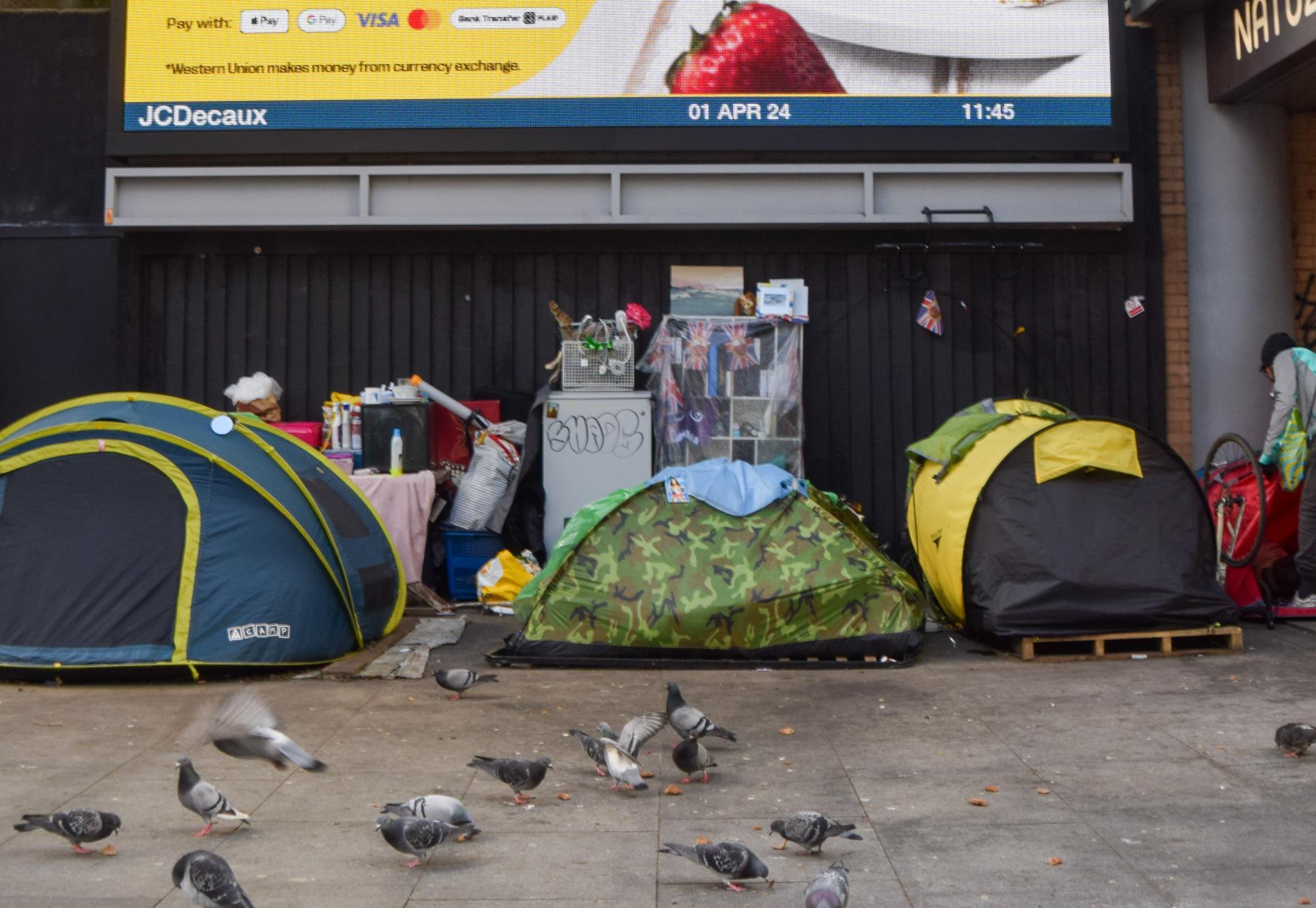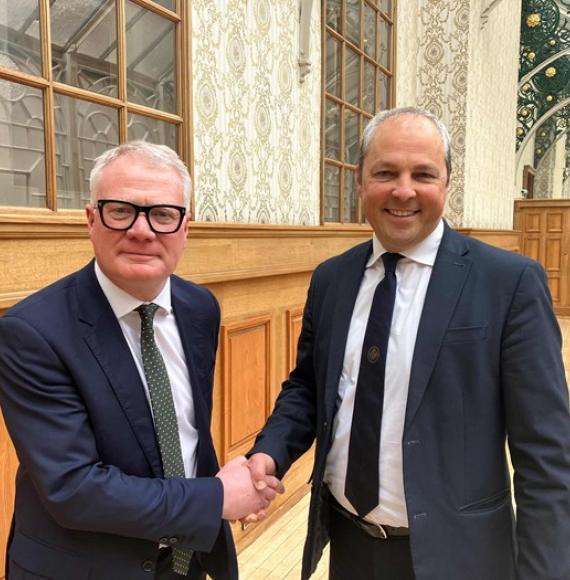The government is making its largest-ever investment in homelessness prevention services to tackle, reduce, and prevent homelessness and rough sleeping. Nearly £1 billion will be allocated to council budgets to help break the cycle of homelessness.
This funding will provide more resources for frontline workers who help rough sleepers find secure housing and assist homeless families in moving out of temporary accommodation.
Councils will now have the tools to intervene early and prevent households from becoming homeless. This includes mediation with landlords or families to prevent evictions, assistance in finding new homes, and deposits for private rentals. Local areas can also invest in services like Housing First, which prioritises secure housing for people with histories of repeat homelessness and multiple disadvantages, including substance abuse. This will ensure critical outreach staff can provide specialist services to address substance abuse and offer life skills to improve employment opportunities.
Additionally, councils can continue funding tailored support for prison leavers to access private rented homes and participate in locally run programs offering new education and employment opportunities. These programs aim to help former prisoners avoid homelessness and readjust to life outside prison.
With the worst housing crisis in living memory, around 40% of homeless families are living in B&Bs or nightly-let accommodations, and the use of such emergency housing has doubled in three years. Many of these places lack basic facilities, making it difficult for parents to cook healthy meals for their children while councils face increasing financial strain.
Years of underinvestment in local preventative services have forced many homeless families into temporary accommodation for extended periods, with a record 123,100 households, including nearly 160,000 children, affected.

Deputy Prime Minister and Secretary of State for Housing, Angela Rayner said:
“Too many people have been failed by the system time and again.160,000 children face spending this Christmas without a stable place to call home. I am determined to break the cycle of spiralling homelessness and get back on track to ending it for good.
“This largest-ever investment marks a turning point, giving councils the tools they need to act quickly and put in place support for people to tackle, reduce and prevent homelessness. It’s time to turn the tide.
“This historic funding comes alongside our work developing a cross-government strategy back on track to end homelessness, pulling every lever of the state, to ensure that we deliver not just sticking plasters but a long-term plan.
“Through our Plan for Change I am determined to tackle the housing crisis we inherited head on, building the homes we need, delivering the biggest boost in social and affordable housing in a generation and ending no fault evictions.”

Minister for Homelessness, Rushanara Ali said:
“We have inherited the worst housing crisis in living memory that has left far too many families trapped in temporary accommodation with no end in sight and soaring numbers of people sleeping rough on our streets.
“This is the dire legacy we have inherited as a government, and we are fully determined to take immediate action. Our funding will not only support councils delivering vital services that meet the needs of their communities but also pave the way for our long-term plan to get us back on track to end homelessness once and for all.”
A new dedicated Inter-Ministerial Group, chaired by the Deputy Prime Minister, brings together ministers from across government to develop a long-term strategy working with mayors and councils across the country to get back on track to ending homelessness once and for all.
Next year’s funding will deliver three important steps in the government’s long-term plan to tackle homelessness:
- stopping households becoming homeless in the first place.
- addressing the growing use of B&Bs and nightly-let accommodation.
- streamlining funding structures to make it easier for councils to spend their cash.
The full breakdown of new funding includes the following:
- Over £633 million for the Homelessness Prevention Grant, a £192 million increase from this year, supporting councils to prevent homelessness and provide temporary accommodation where required for families who recently became homeless, for example, through eviction or fleeing domestic violence. This is allocated based on local pressures.
- £185.6 million for the Rough Sleeping Prevention and Recovery Grant, consolidating the main rough sleeping and single homelessness focused grants into a single pot of money. This means councils can better prioritise when providing warm beds and shelter for people at risk, or experiencing, rough sleeping.
- More than £37 million for the Rough Sleeping Accommodation Programme, providing ongoing support costs to help rough sleepers into longer term accommodation alongside specialist staff supporting their mental health and substance abuse problems to pave the way for job opportunities.
- £58.7 million for the Rough Sleeping Drug and Alcohol Treatment Grant to continue supporting evidence-based drug and alcohol treatment and support services.
- £10 million to the Changing Futures Programmes which offers long-term support for adults experiencing multiple disadvantage, including combinations of homelessness, substance misuse, mental health, domestic abuse.
- £7.6 million for Sector Support grants that will strengthen the capacity the voluntary sector with more staff, including StreetLink that encourages people to notify their authority if they’ve seen someone sleeping rough and what local services are available to provide immediate help into emergency accommodation.
- £5 million for Emergency Accommodation Reduction Pilots, to work with 20 local councils with the highest use of Bed and Breakfast accommodation for homeless families to put in place specialised plans to reduce the use of emergency accommodation, including B&Bs.
This funding is just one element of the government’s Plan for Change to fix the housing crisis, strengthen protections and rights for tenants, and deliver the biggest increase in social and affordable housebuilding in a generation.
Section 21 ‘no fault’ evictions, one of the leading causes of homelessness, will be abolished as part of the landmark Renters’ Rights Bill. This will give greater security to new and existing tenancies and empower tenants to rightly challenge poor conditions.
Last week the government published a new growth focused National Planning Policy Framework as part of the Plan for Change, giving councils greater powers to build more social homes alongside vital infrastructure such as GP surgeries, schools and shops.
This supports the ambition to deliver the biggest increase in social and affordable housing in a generation, with an extra £500 million for the Affordable Homes Programme to build tens of thousands of affordable homes across the country.
The government is also bringing forward overdue reforms to the Right to Buy scheme to reverse the decline in much needed council housing and better protect existing housing stock. Decisive action has already been taken to reduce maximum discounts and allow councils to retain all receipts from sales to scale up delivery to meet future housing need.
Councils already have greater flexibility to use Right to Buy receipts to build and buy more homes as well as an additional £450 million to secure and create homes for families at risk of homelessness.
This announcement comes as the government prepares to publish its provisional Local Government Financial Settlement before the end of the year.
Image credit: UK Government & iStock



















